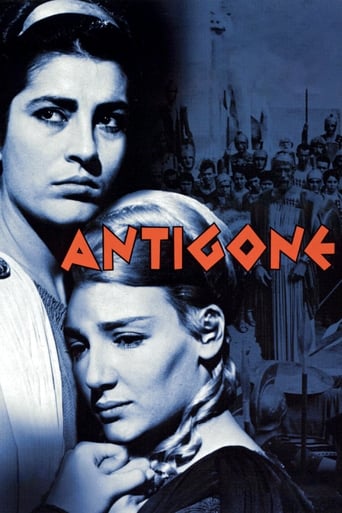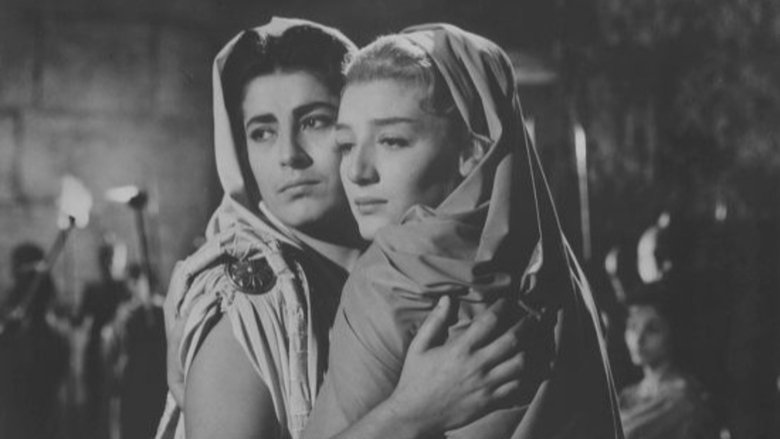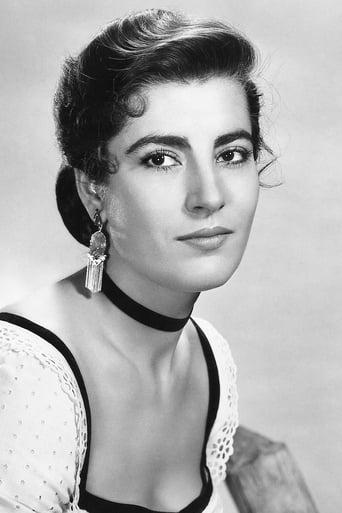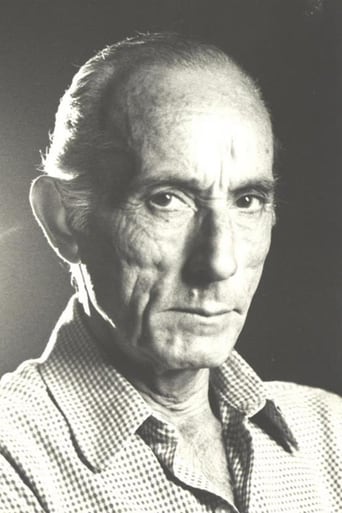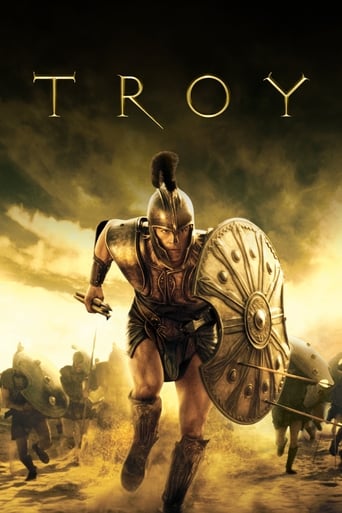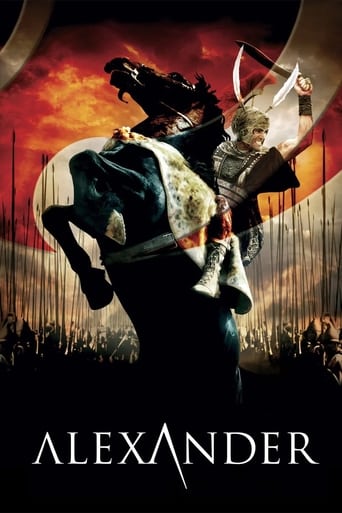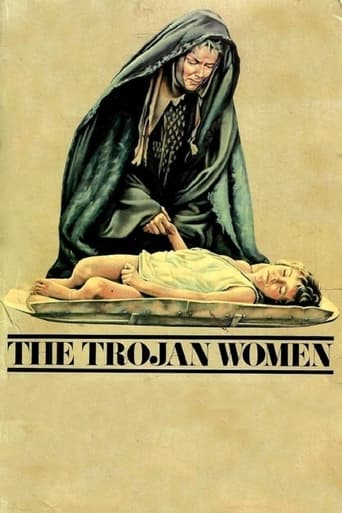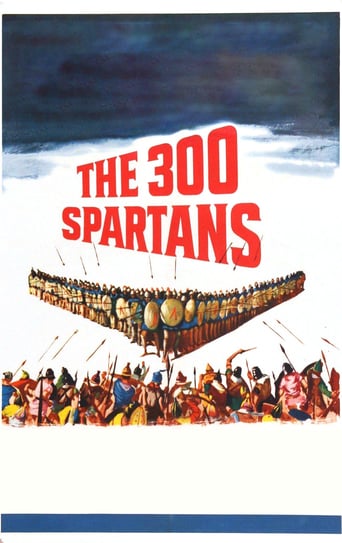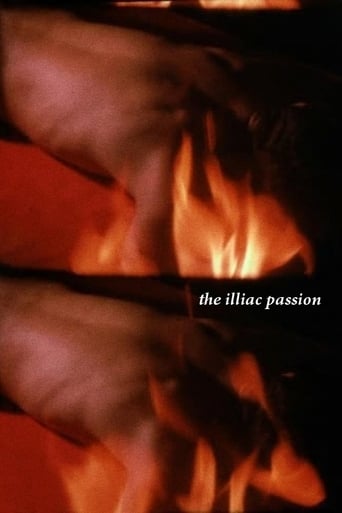Antigone (1961)
In Thebes in ancient Greece, King Oedipus kills his father and marries his mother Jocasta, having two sons - Eteocles and Polyneices - and two daughters - Ismene and Antigone. King Oedipus dies a beggar in the exile after gouging out his own eye, and Eteocle agrees to reign in Thebes in alternating years with Polynices. However, he refuses to resign after the first year and Polynieces raises an army and attacks Thebes, and they kill each other. The ruler of Thebes Creon decrees that Eleocles should have an honorable burial while the body of the traitor Polyneices should be left on the battlefield to be eaten by the jackals and vultures. However, Antigone, who was betrothed to Creon's surviving son Haemon, defies Creon's orders and buries her brother. When Creon is reported of the attitude of Antigone, he sentences her to be placed in a tomb alive. Antigone hangs herself in the tomb and Haemon tries to kill his father first and then he kills himself with his sword...
Watch Trailer
Cast


Similar titles
Reviews
Memorable, crazy movie
Just perfect...
Admirable film.
By the time the dramatic fireworks start popping off, each one feels earned.
Antigone is an old Greek play turned movie that is about family, civil (dis)obedience, and commands of the gods. In the film, King Creon has just occupied the throne and has commanded that Eteocles, the previous ruler, have a royal burial while Polyneices, Eteocles' brother, has been declared a traitor and is to be left to the birds. (I'll give a little bit of the backdrop here simply for clarification purposes. The two brothers, Polyneices and Eteocles have two sisters, Ismene and Antigone; they are all the children of the previous king, Oedipus, and were born out of incest. When King Oedipus vacated the throne, his two sons agreed to rule together; obviously this did not work out as planned, so Polyneices raised an army to attack the city and overthrow his brother. They met on the battlefield and killed each other; right after this is where the movie begins).King Creon proclaimed that anyone who was caught trying to bury Polyneices would be stoned to death. Antigone wants to bury her brother anyway because she believes that it is against the gods' will not to give him a proper burial. This is synonymous to the Greek philosopher Socrates, who claimed he must live the philosophical life by questioning Athens' "wise men" on their self-proclaimed knowledge. He said that this was a command by the gods, and that he was doing his city a service; therefore, he would not stop living a philosophical life even if the cities' rulers command it. Antigone is caught with her brother's corps, King Creon has her buried alive in a cave. Antigone accepts her sentence with dignity, claiming that she did right by the gods for burying her brother. In the Apology, Socrates is sentenced to death by the city since he will not abstain from his questioning lifestyle. Similarly to Antigone, Socrates knew he would be found guilty and accepts his fate calmly. Both protagonists stuck with their moral beliefs rather than bending to the pressure of man; they felt it would be better to die than to live in disobedience to the gods.At one point, Socrates questioned a man named Euthyphro about the meaning of piety. Euthyphro gives multiple definitions throughout the dialogue for what piety is: doing what is pleasing to all the gods, the part of justice which is concerned with care of the gods, and praying and sacrificing to the gods. Socrates finds holes in each of these definitions however, and the conversation ends unsatisfactorily. I believe Euthyphro would have told Antigone that she was correct on obeying the gods and honoring her brother; he also would have told the king that he was just in punishing Antigone despite her being engaged to his son. Socrates taught that obeying the gods was more important than obeying human law. However, in Crito his friend tries to convince Socrates to run away from his death sentence and Socrates refuses because he doesn't want to disregard the laws of the city, thus weakening the state. Haemon, Creon's son does not outright tell his father, thus the law, that he is wrong in punishing Antigone. Merely that Creon ought to think it over and change his mind. Because he does not, Haemon and Creon's wife ultimately commit suicide and Creon is left alone and unhappy. Not too many years after they put Socrates to death, the great city of Athens fell and it has since never returned to its previous glory.
Antigone is a tragic tale that centers on honor, justice and morals. The story takes place in Thebes soon after the city has been attacked. The movie begins with Antigone and Ismene being devastated after their two brothers killed each other in battle. Antigone tells Ismene how the new ruler, King Creon, is going to provide an honorable burial for Eteocles, but leave Polynieces unburied for the vultures to pick apart for his betrayal to Thebes. The Ancient Greeks held the honor of their cities in very high regard. The fact that Polynieces attacked the city that gave him his life was appalling to King Creon. King Creon based his decision off of divine law and what Zeus would want for betraying ones homeland and brother. This basis can be compared to Socrates' argument that he must obey the gods and his divine sign. King Creon believed he stood for justice and was doing the right thing by following the gods rule, yet in Euthyphro Socrates came to the conclusion that something is not right or just, just because the god commands it. On the other hand, Antigone sees honoring her family and her love for her brother as the right thing to do. Antigone tells Ismene that she is going to give Polynieces a proper burial even if it goes against the King's command. Antigone also bases her decision on the unwritten law of the gods because she thinks it is higher in power than the King's edict not to bury her brother. After Antigone buries Polynieces he is unburied by the King's soldiers and they catch Antigone at the burial site when she returns to her brothers side a second time. King Creon sentences Antigone to death without any deliberation. Haemon, King Creon's son, stands for reason and tells his father that others can be right too and one should not be so fast to judge. He tells his father how the city sees Antigone as noble, but they are too afraid to speak out against the King's verdict. This situation is similar to the trial of Socrates in that all parties on both sides say they believe in the gods and base their decisions off them, yet they all have differing views of what is right. Antigone believed she was following the rules of the gods and standing for the justice of her own blood. King Creon also believed he was following the god's laws and stood for the justice and values of the state. Socrates claimed to be obeying the command of the god and stood for all that is right and good (i.e. virtues, truth, fairness and justice). The jurymen in Socrates' trial accused him of being impious and used the justice of the laws to sentence Socrates to death. In both cases neither side showed any flexibility in what they saw as right and just. There is an ethical dilemma in that what is just is not always morally right and one should use reason to determine this rather than basing decisions solely off the gods command.
In Thebes in ancient Greece, King Oedipus kills his father and marries his mother Jocasta, having two sons – Eteocles and Polyneices – and two daughters – Ismene and Antigone. King Oedipus dies a beggar in the exile after gouging out his own eye, and Eteocle agrees to reign in Thebes in alternating years with Polynices. However, he refuses to resign after the first year and Polynieces raises an army and attacks Thebes, and they kill each other.The ruler of Thebes Creon (Manos Katrakis) decrees that Eleocles should have an honorable burial while the body of the traitor Polyneices should be left on the battlefield to be eaten by the jackals and vultures. However, Antigone (Irene Papas), who was betrothed to Creon's surviving son Haemon (Nikos Kazis), defies Creon's orders and buries her brother. When Creon is reported of the attitude of Antigone, he sentences her to be placed in a tomb alive. Antigone hangs herself in the tomb and Haemon tries to kill his father first and then he kills himself with his sword. When Creon's wife Eurydice (Ilia Livykou) is informed of the death of her son, she also commits suicide, leaving Creon alone.The theatrical "Antigoni" is a nice feature about the famous Greek tragedy of Sophocles focused in Antigone, the incestuous daughter of Oedipus and therefore also his half-sister and Jocasta's granddaughter. The movie begins with an important big picture of Thebes and the major characters of that period, and is extremely well acted. This is the first time that I watch this movie and I saw it in an American VHS. I only regret the quality of the subtitles that are visibly too much summarized since there are long speeches of characters that are translated in two or three words in English. My vote is eight.Title (Brazil): Not Available
This film, seen in my youth, has etched itself indelibly into my psyche. Achingly bleak, this story of a sister's love is portrayed in a classical style, with Irene Pappas powerfully projecting the character of the title role. This is a worthwhile way to use your valuable time.

